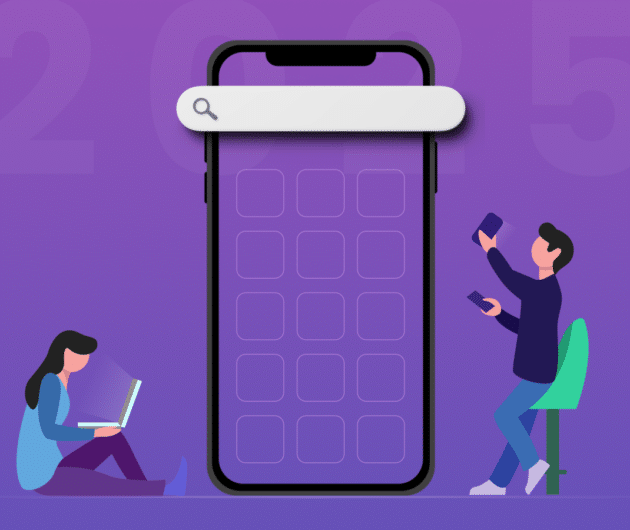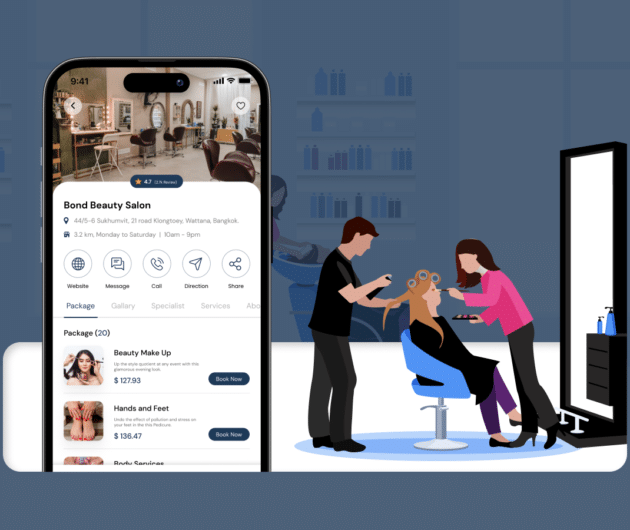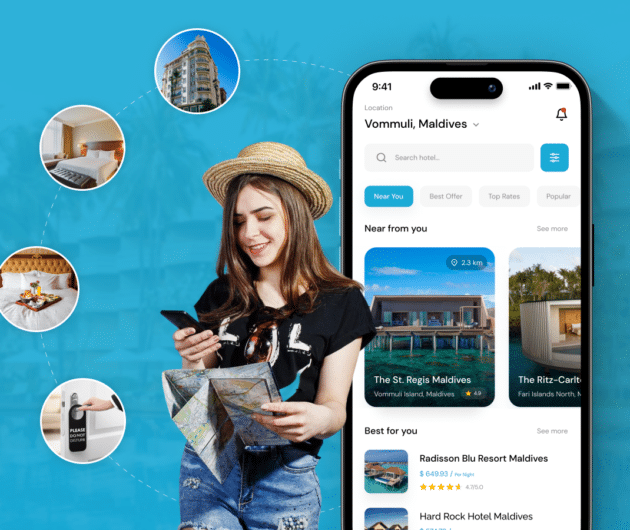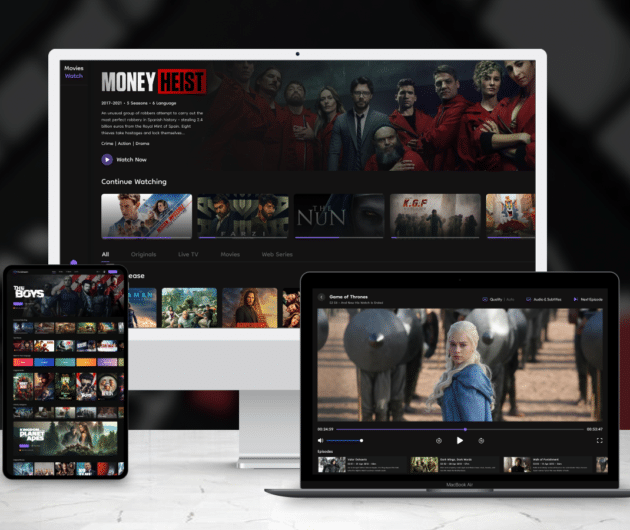How to Choose the Right Mobile App Development Company
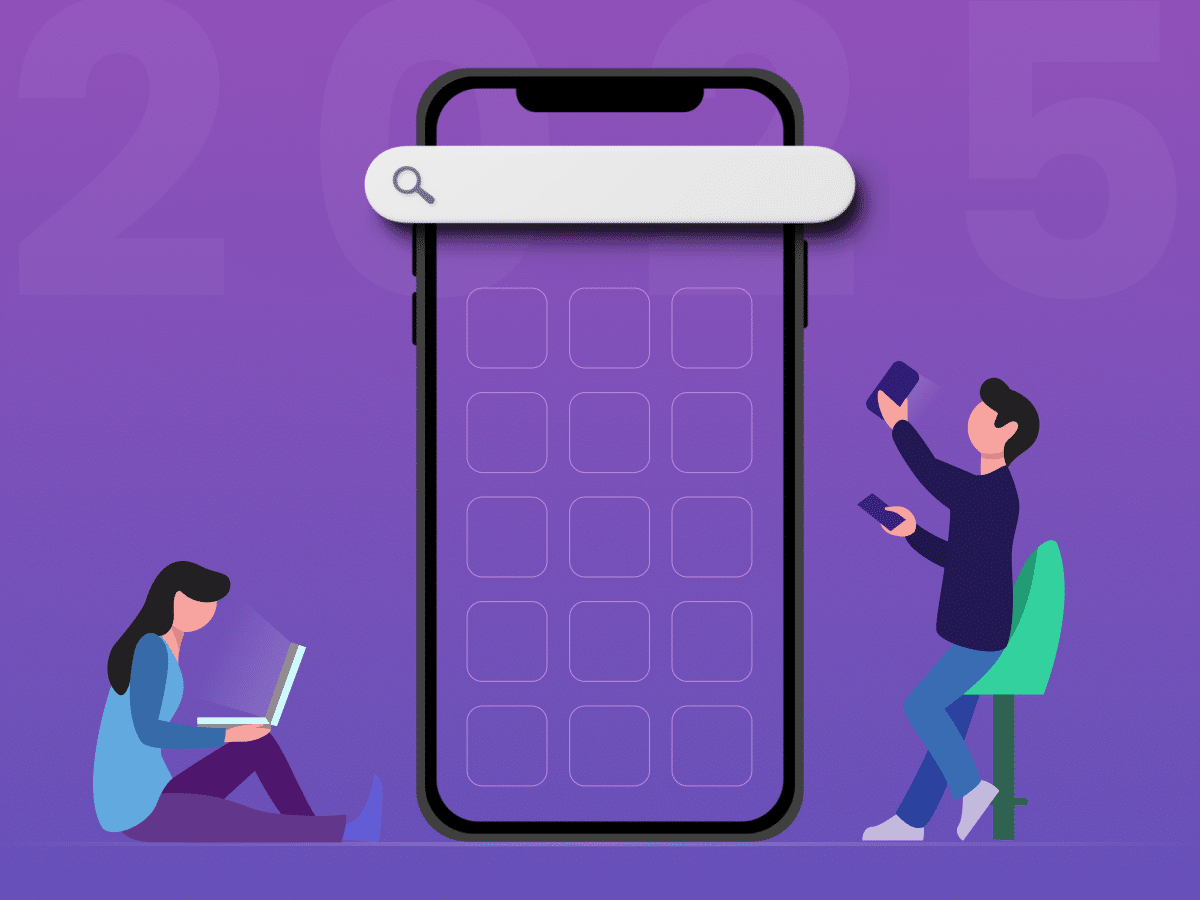
-
Ankit Patel
- April 15, 2025
- 6 min read
Imagine this: you’ve got a brilliant app idea that could revolutionize your business, take it to new heights, and transform your entire customer experience. But without the right team to develop it, that idea is nothing more than a dream.
In the world of mobile app development, choosing the right development partner is everything. The difference between a successful app and one that flops often comes down to who’s behind the code.
Think about the companies you know: Uber, Instagram, Spotify — their apps didn’t just appear overnight. They were meticulously built by teams who didn’t just understand the tech but also understood the business goals behind them.
So, how do you find that team? How do you ensure your app isn’t just another download lost in the app store?
Building a successful app isn’t easy. It takes more than just a great idea; it requires the right expertise. That’s where choosing the right mobile app development company comes in.
The truth is, more than 60% of companies are choosing to outsource app development because it gives them access to specialized expertise that they can’t build in-house. And it’s not just startups—major enterprises are doing it too. Why? Because outsourcing lets you focus on your core business, while experts focus on bringing your app to life.
Now you’re probably thinking, “How do I choose a right app development company?”
Whether you’re planning to launch a brand-new app or upgrade an existing one, this guide will help you choose a development team that fits your goals, budget, and vision.
So without further ado, let’s dive in and find out how to hire an app development company that truly aligns with your goals.
⦿ The Shifting Sands: Key Mobile App Development Trends in 2025
The mobile app development industry is fast-moving, constantly shaped by new technologies and innovations.
For startups and businesses aiming to build an app in 2025—whether it’s to upgrade an existing product or build an app from scratch, it’s crucial to stay updated on the latest trends. This knowledge will guide your decisions and ensure you choose the right mobile app development company.
By understanding these trends, you’ll be better equipped to select a development partner who doesn’t just follow the trends, but also helps you stay ahead of the curve in today’s rapidly evolving digital world.
| Trend | Description |
| AI and Machine Learning | Smarter, more personalized apps that adapt to user behavior. |
| 5G Technology | Faster connectivity enabling richer AR/VR and IoT experiences. |
| Low-Code/No-Code | Simplifies the app development process, allowing quicker delivery with minimal coding. |
| AR/VR/Metaverse | Immersive, interactive user experiences beyond traditional apps. |
| Mobile Commerce | Increased shopping directly through mobile apps. |
| Foldable/Wearable Apps | Apps designed for new-age devices like foldables and wearables. |
| Security & Privacy | Stronger focus on data protection and user privacy. |
⦿ Outlining the Requirements for Your Mobile App Project
Before you begin, it’s important to clearly outline the key elements of your app:
- App Features: List the main functions, unique features, business objectives, and the target audience for your app. Also, decide whether you want a native, web, or cross-platform app.
- Budget and Timeline: Set a reasonable budget and timeline. Make sure you strike a balance between cost and quality to avoid compromising either.
- Target Audience: Understand the specific needs, preferences, and behaviors of your target users to ensure the app fits their expectations.
- Long-Term Goals: Think about the future. Consider your app’s potential for scalability, updates, and long-term growth.
⦿ Understanding the Different Types of Mobile App Development
When it comes to choosing the right mobile app development service, here’s what you need to know:
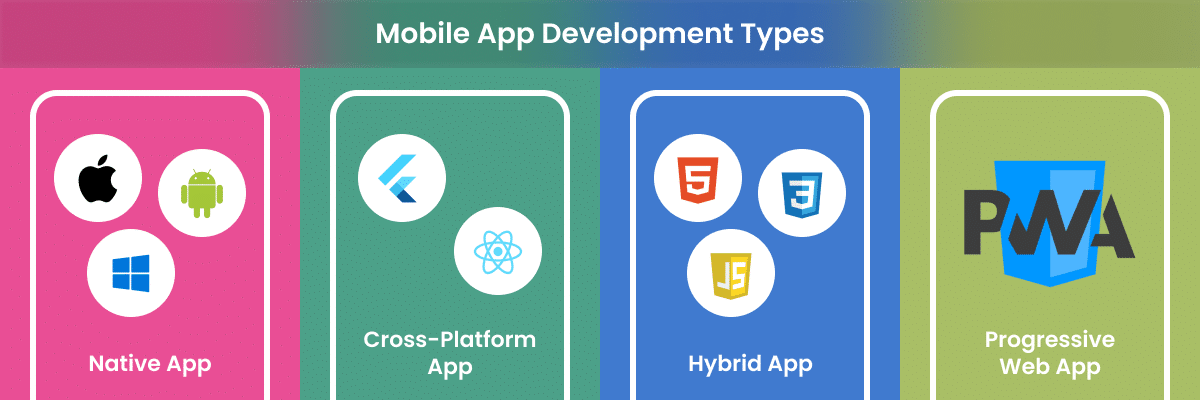
1. Native App Development
These apps are built specifically for one platform (iOS or Android). They provide the best performance and user experience but are limited to a single platform.
2. Cross-Platform App Development
Using frameworks like Flutter or React Native, this approach allows you to build apps that work across multiple platforms with a single codebase, saving time and resources.
3. Hybrid App Development
A mix of web and native approaches, hybrid apps are faster to develop and cost less. However, they may not offer the same level of performance as native apps.
4. Progressive Web App (PWA) Development
PWAs combine the best features of web and mobile apps. They are accessible through a browser, but behave like a native app, offering offline capabilities, push notifications, and fast loading times. PWAs are a cost-effective option for businesses that want to deliver a native app-like experience without the need for app store deployment.

⦿ Understanding the Cost of Mobile App Development in 2025
Before diving into the development process, one major question stands out: What’s the real cost of building a mobile app in 2025?
Understanding the financial side of app development is essential for effective planning and avoiding unexpected budget overruns.
Unlike purchasing off-the-shelf software, building a mobile app is a custom process. The final cost depends on various factors that are all connected.
Let’s break down the key factors that affect the mobile app development cost.
• Design Complexity
A simple app design will cost less than a more complex, visually stunning one. If your app requires advanced UI/UX design, custom graphics, and advance features, it will need more time and skills, leading to a higher cost.
• Platform Choice: Android, iOS, or Both?
Choosing between a single platform (Android or iOS) or both will significantly impact the cost. Native apps for each platform require separate codebases, meaning higher development costs. Cross-platform or hybrid apps, on the other hand, are generally more affordable.
• Feature Selection
The features you want in your app will greatly influence the cost. A simple MVP (Minimum Viable Product) with basic features will be less expensive than an app with advanced features like GPS, real-time data processing, or integration with third-party services.
• App Complexity
The complexity of your app is the biggest factor that affects development cost. A simple app with a basuc features will be more affordable, while a feature-rich, custom solution will require more time, testing, and experienced developers — leading to a higher investment.
• Location of the Company You Choose
The location of the mobile app development company you select can affect the cost of your project. Companies in different parts of the world have different pricing models.
For example, hiring a company in countries like India or Eastern Europe, may offer you more affordable rates. On the other hand, companies in regions like North America or Western Europe may charge higher rates due to higher labor costs.
• Post-Launch Maintenance and Updates
Launching your app is just the beginning. You need to budget for ongoing maintenance, bug fixes, security updates, and any future upgrades. These recurring costs should be part of your overall financial planning.
⦿ Key Factors to Consider When Choosing a Mobile App Development Company
1. Experience & Expertise
Choose a company with a solid track record in mobile app development. Industry-specific experience is a plus, but what really matters is their ability to deliver high-quality, functional apps that align with modern trends.
2. Portfolio Evaluation
Review their portfolio carefully. Look for apps similar in complexity to your project. If possible, download and test a few to evaluate performance, design, and usability.
3. Security Standards
Make sure the company follows strong data security practices. Ask how they handle user data, encryption, and compliance with privacy regulations.
4. Technical Proficiency
Ask about the technologies they use — programming languages, frameworks, tools, and how up-to-date they are with the latest in mobile development.
5. Reviews & References
Check client testimonials, ratings, and case studies. Don’t hesitate to request references and speak with past clients about their experience.
6. Transparent Pricing
Ensure the company provides a clear, detailed cost estimate. Understand their pricing model, payment terms, and whether there are any hidden or extra charges.
7. Post-Launch Support
Ask about maintenance and support after your app goes live. Do they offer updates, bug fixes, or improvements? How quickly do they respond to issues?
8. Timeline Commitment
Review their proposed timeline. Make sure they set clear milestones and can realistically deliver on schedule. Ask how they handle delays or unexpected changes.
9. Client-Centered Communication
The best companies focus on your goals. They should listen to your needs, offer honest advice, and keep communication open throughout the project.

⦿ Mistakes to Avoid When Choosing a Mobile App Development Partner
• Vague Proposals
Be cautious of proposals that are unclear about the features, timelines, pricing, or development process. A good company should provide detailed and transparent information.
• Unrealistic Timelines
If a company promises to deliver a complex app in an unusually short time (or takes too long), it’s a warning sign. Rushed timelines often lead to poor quality, and overly long ones may show a lack of efficiency or understanding.
• Weak or Irrelevant Portfolio
If the company can’t show you real examples of past work — or if their projects are totally unrelated to what you’re building, it’s best to look elsewhere. A strong, relevant portfolio shows they know what they’re doing.
• No Post-Launch Support or Testing Strategy
A reliable partner should offer clear support after your app goes live and have a strong testing process in place. If they don’t mention either, they may not be thinking long-term.
⦿ Conclusion: Make the Right Move for Your App’s Future
Choosing the right mobile app development company isn’t just a technical decision — it’s a business move that can define your app’s success. With the mobile app market booming in 2025, you need a partner who understands your goals, aligns with your vision, and has the experience to bring your ideas to life.
Whether you’re a startup looking to turn your idea into reality or a growing business aiming to scale, the right partner can help you build an app that delivers real value.
⦿ Ready to Launch a Successful App? Partner with Xongolab
Well, you have a vision. And we’ve the knowledge and skillset to turn it into a powerful, high-performing app that drives real results.
In today’s fast-moving tech world, you need more than just developers — you need a team that understands the latest trends, prioritizes quality, and solves real business problems.
At Xongolab, we don’t just build apps — we create digital solutions that drive business growth, enhance user experiences, and help you thrive in a competitive market.
Contact us today and let’s build something great together.
You may also like
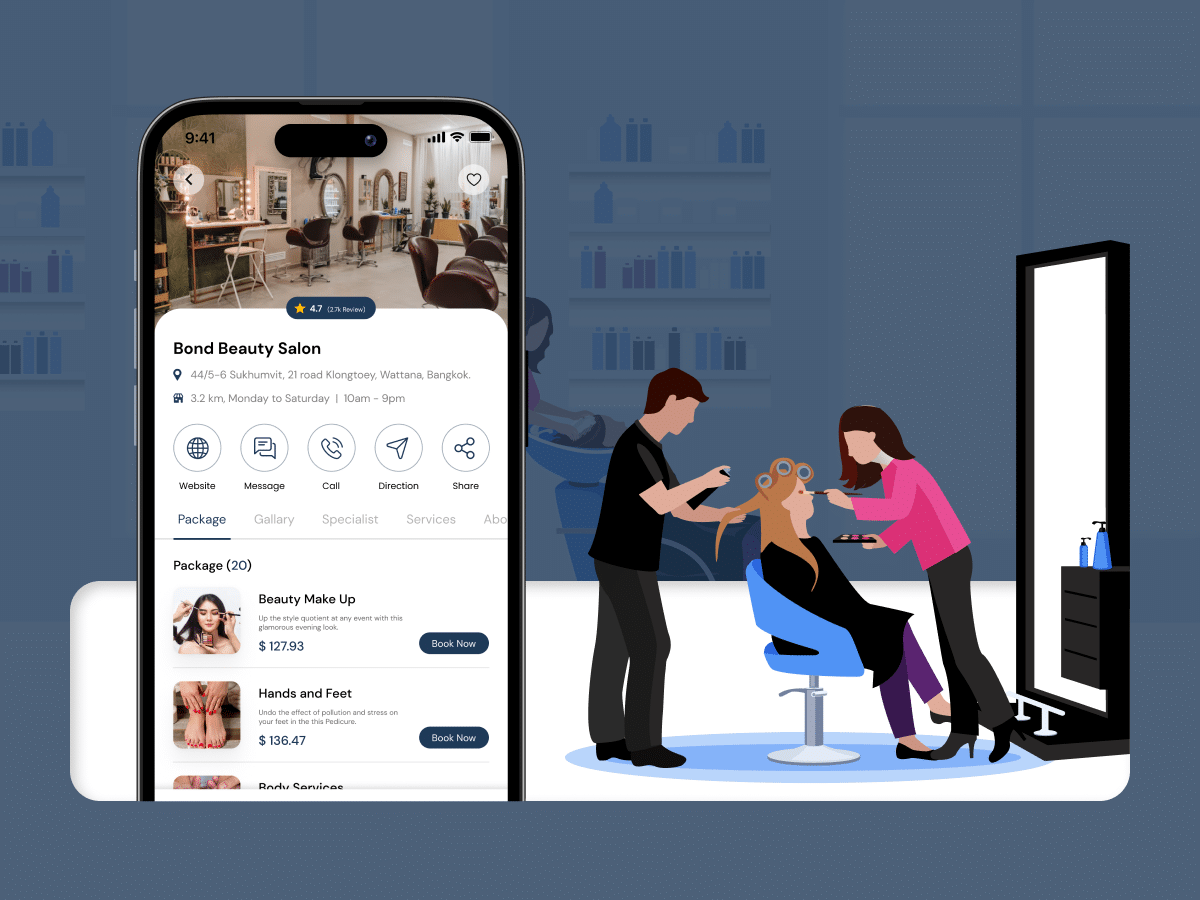
How Much Does it Cost to Build a Salon Booking App like Fresha?
-
Ankit Patel
We all have witnessed the buzz in the world of beauty & wellness, and it’s booming every day thanks to the fast-paced and stressful lifestyle. In an era where time… Read More
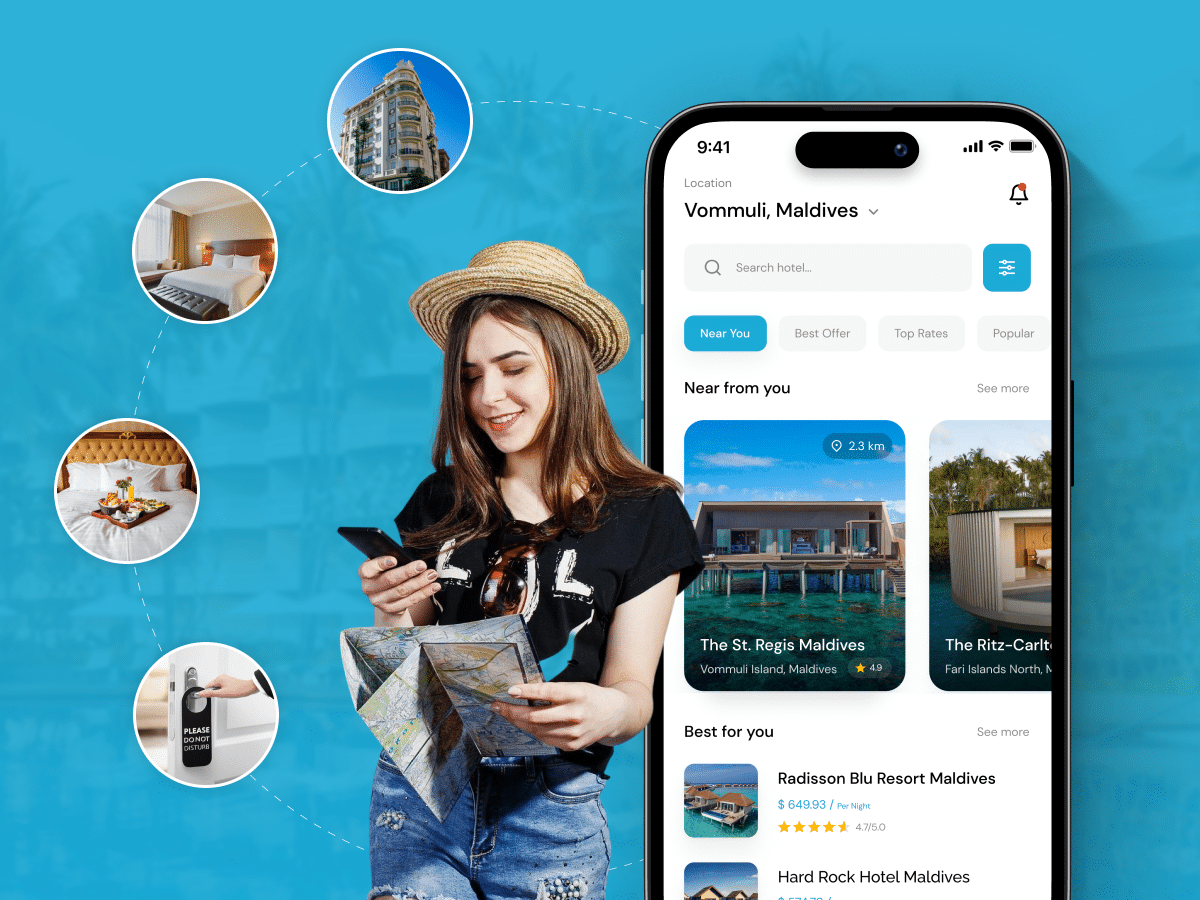
A Complete Guide to Hotel Booking App Development With Cost
-
Ankit Patel
Whether it’s a corporate business trip or a relaxing vacation with friends, finding the right hotel at the right time and a seamless hotel booking experience is not a luxury… Read More
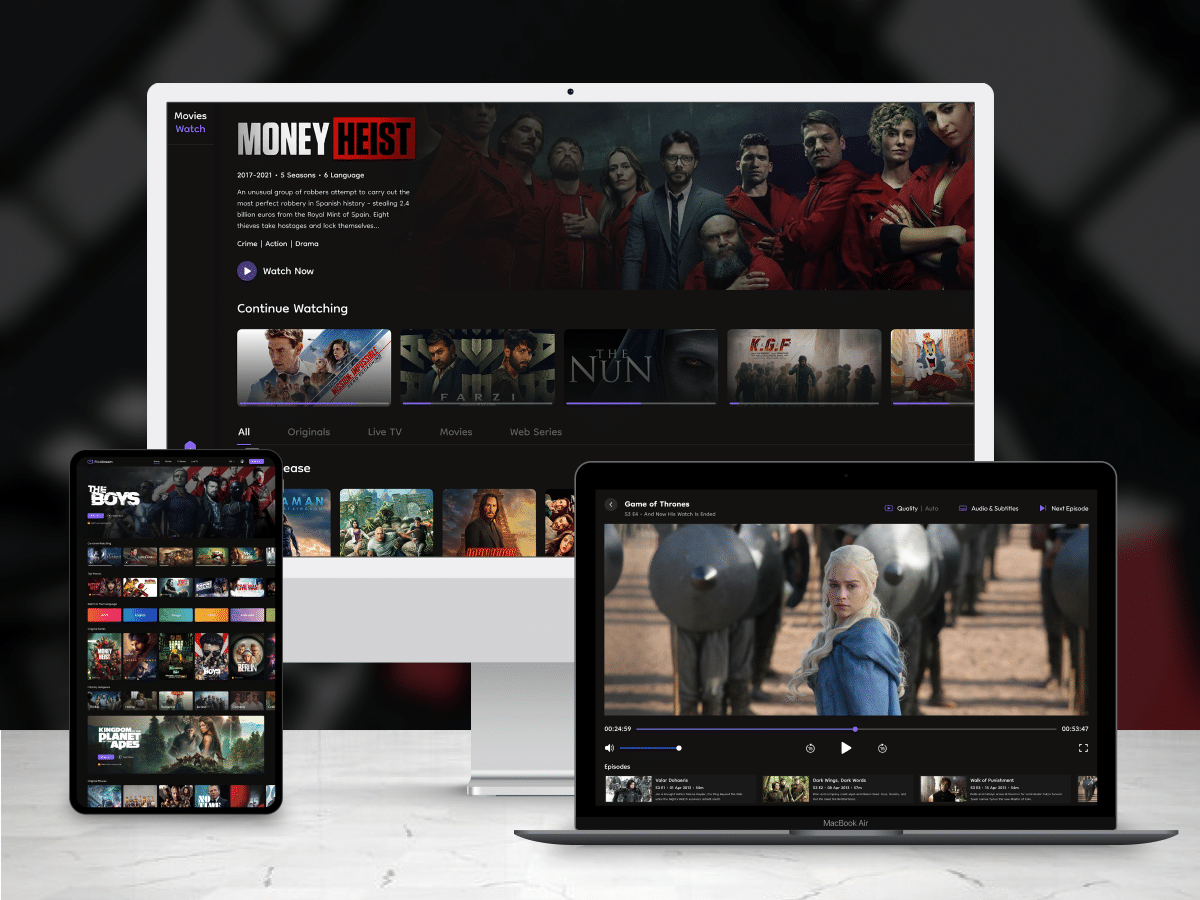
Mastering OTT Platform Development in 2025: A Complete Guide
-
Jignesh Nakrani
Very few of you might remember those days when we had to wait for the whole week to have fun watching that one episode of our favorite show! Ahh those… Read More

